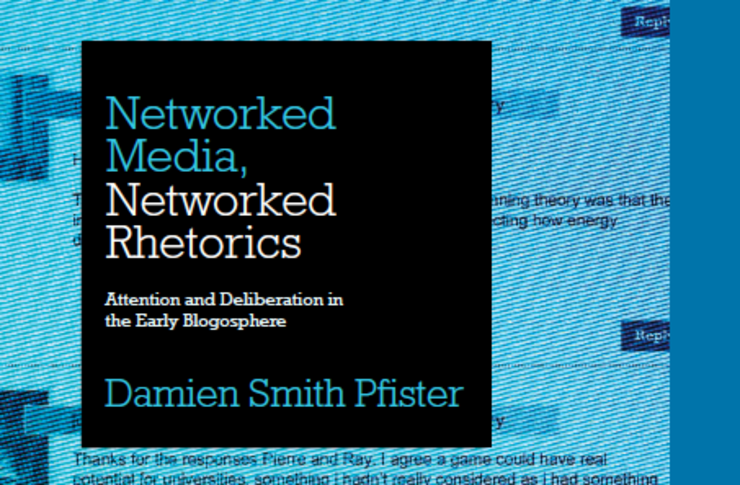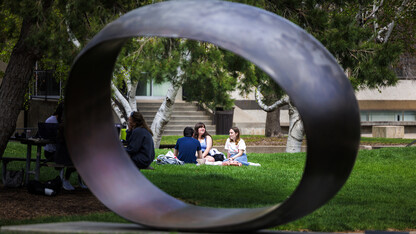· 4 min read
Pfister’s book examines rise, effects of political blogging

It goes without saying that the fiercest political battles today are fought in the digital world. Candidates and politicians — and their surrogates — take to social media and other digital forums to push their messages and interact on the burning topics of the day.
With so much interactivity and fast-moving facts, voters have more access to information than ever — so much that the communication platforms they use can help sway elections, change policies and stunt politicians.
That’s thanks in large part to the pioneers of the blogosphere, said Damien Pfister, assistant professor of communication studies, who identifies blogging as one of the first native genres of the Internet.
Pfister has traced the early beginnings of bloggers’ political power in his new book, “Networked Media, Networked Rhetorics: Attention and Deliberation in the Early Blogosphere.” The edition, which will be released Nov. 17, is published by the Pennsylvania State University Press.
In it, Pfister draws from three case studies to demonstrate how bloggers have fundamentally changed the course of political and public discourse — and that’s mostly a good thing.
“Bloggers were often marginalized as being dilettantes, or as not being as serious or as objective and pushing their own subjective opinions,” Pfister said. “But lots of different arguments from lots of different people is an important part of democratic deliberation and an important part of civic life.
“When we dismiss that, we risk what makes democracy strong in the first place.”
The book chronicles how the effects of the early blogosphere can be seen in nearly every aspect of the Internet. Using examples such as the chronological organization of blogs, as well as the early ability to comment and engage with bloggers, Pfister argues that the way users now engage can be traced directly back to early weblogs.
But Pfister said the blogosphere also has brought constraints. Two have been the unsettling of journalism norms and the blurring of the line between fact and opinion.
He cited controversies surrounding comments made at private fundraisers by President Obama in 2008 and Mitt Romney in 2012. In both cases — Obama about how some “bitter” voters tend to cling to guns and religion, and Romney about how 47 percent of Americans are dependent on government and see themselves as victims — each candidate assumed he was speaking candidly and off the record to donors, Pfister said.
“There was criticism that the bloggers (who eventually broke the stories) broke the journalistic norms,” he said. “But on the other side of it, isn’t this kind of investigative journalism that holds politicians accountable for their words exactly what journalists are supposed to do?”
Pfister said blogs are helping to hold politicians and people in positions of power more accountable and has produced “some fantastic political fireworks,” but he also argues that there is downside to the environment created by political weblogs.
“It’s made politicians less willing to experiment (and) less willing to test out ideas, because they are afraid of being recorded and then being accused of flip-flopping if the situation changes and they change their mind,” he said. “There’s something a little unfortunate about that and politicians, like the rest of us, should be allowed to experiment and test out new ideas.”
The pervasive nature of blogging and citizen journalism makes it harder for political evolution over time, he said, and politicians should be afforded room to change their stances based on new information.
“We need an ethic of playfulness,” Pfister said. “We need to allow our politicians to play with new ideas. We need to encourage our politicians to experiment with ideas, because too often they are overly satisfied to just put their ideological blinders on.”








